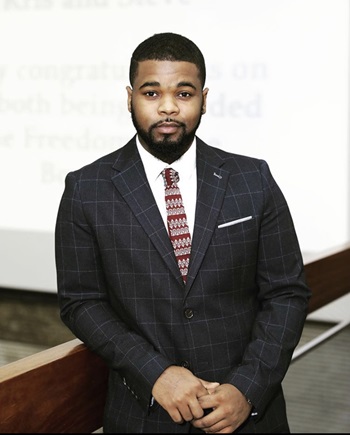Interview with Jacob Sakil, the youngest member of the National Youth Justice Board
Jacob has taken some time to speak to us about his plans for his time on the board and how his experience within the council will help him in the role.

What is the National Youth Justice Board? What is the purpose of the board and why is it important?
I learnt about the Youth Justice Board because of the work I do with the youth offender’s service in Lewisham and I am part of their Youth Justice Management board as youth rep. The Youth Justice Board is a non-departmental public body created by the Crime and Disorder Act 1998 to oversee the youth justice system for England and Wales. It is sponsored by the Ministry of Justice, and its Board members are appointed by the Secretary of State for Justice.
One of its main remits is to monitor the operation of the youth justice system and help build lasting changes which reflect improvements needed highlighted by the data and children’s lived experience. The board also looks at good practice whilst keeping the voice of our young people at the centre. I think that’s the most important thing because it’s very similar to being a youth worker, but they are looking at it from a strategic direction of how to address people who come into contact with the youth justice system and criminality.
I think the position is going to be very worthwhile. As a youth worker, you meet young people who can give so much, but ‘if only’ comes into the conversation, and I’m tired of that ‘if only’. Now I don’t say ‘if only’, I say ‘how’ and ‘when’.
How do you plan to use your seat on the board to support Lewisham youth now and in the future?
During my time on the board it is my foremost mission to inform all young people growing up in our country about the work of the board and how they can be a part of this conversation. I’ve always advocated for ensuring young people are given the same opportunity at leadership and decision-making positions in society.
In terms of Lewisham, my main priority is to ensure that while I’m a Youth Justice board member, young people in the borough understand the purpose of it, recognise how they can be a part of the changes that are happening around prevention and support. But to also reconsider their relationship with the criminal justice system and what support is available to them. I want to ensure that young people are put at the front of every department, national or local Government of any institution that they interact with.
For me what’s really important is not just informing young people, but giving them a voice where they can advocate for themselves. The only way we can do that is if young people are part of the processes themselves and can participate in the conversation with the institutions which help create the society that we live in.
How was your experience with Lewisham going to help you in this role?
Every experience I’ve had and all the work I’ve done up until this point have put me in a unique position to add to the Youth Justice board and its aims. Being Young Mayor of Lewisham in 2009/10 was the first time I had the opportunity to advocate for others in a public role. Being 16 at the time allowed me an early understanding of leadership, diplomacy but most of all keeping at the centre of what I do, my ‘why’. My lived experience and continued residency in Lewisham, as well as attending Goldsmith’s university in Lewisham, provides me with a window to connect the factors which influence the narrative around young people and the youth justice system.
Lewisham keeps me grounded every day through the work I do with young people. It’s given me the richness of stories both personal and from others to take on this role as a Youth Justice board member and deliver on bringing a new lens to issues faced by our young people who interact with the youth justice system.
What are your plans for the future?
It’s really interesting because I used to joke that one day I want to become Mayor of Lewisham. *laughs* And now I think about it and the older I get the more I realise that I can’t help but want to help others.
I’m on the board for three years and then I’ll be thirty, I think I might want to run to become a local councillor. I want to put youth work and informal education at the centre of how we engage our young people. With the education system, you can only do so much, we live in a democracy, I don’t know how we allow our young people to get to an age where if things are bad they end up in the criminal justice system. But even if things aren’t so bad they don’t get to reach their full potential without exposure to opportunities, networking and resources.
I want to motivate other young people who are interested in public service to be in the same spaces as me and use their skills to further develop our communities and institutions. One of my key measures of success after the work I’ve done is to not be the only one in the room who can relate to my lived experience. When given a chance it’s our job to then pay it forward.